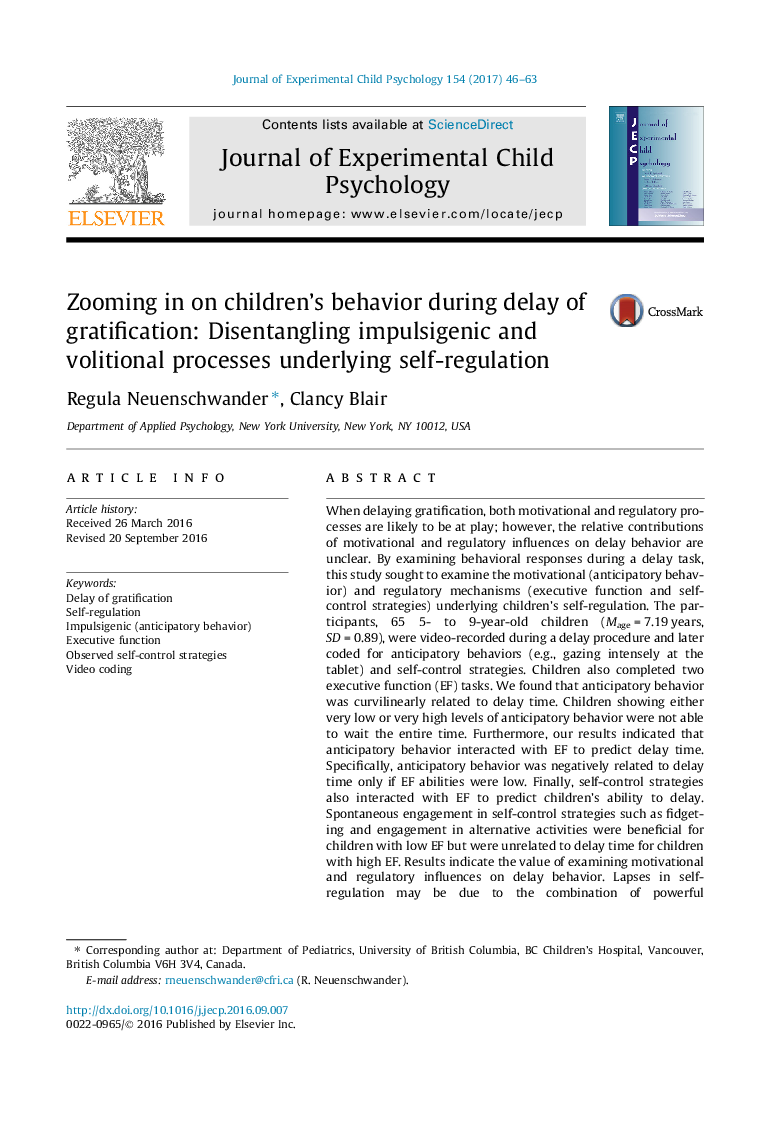ترجمه فارسی عنوان مقاله
رفتارهای کودکان در طول زمان تأخیر: رفتارهای غیرمنتظره و اختیاری که در زیر کنترل خود قرار دارند
عنوان انگلیسی
Zooming in on childrenâs behavior during delay of gratification: Disentangling impulsigenic and volitional processes underlying self-regulation
| کد مقاله | سال انتشار | تعداد صفحات مقاله انگلیسی |
|---|---|---|
| 131565 | 2017 | 18 صفحه PDF |
منبع

Publisher : Elsevier - Science Direct (الزویر - ساینس دایرکت)
Journal : Journal of Experimental Child Psychology, Volume 154, February 2017, Pages 46-63

